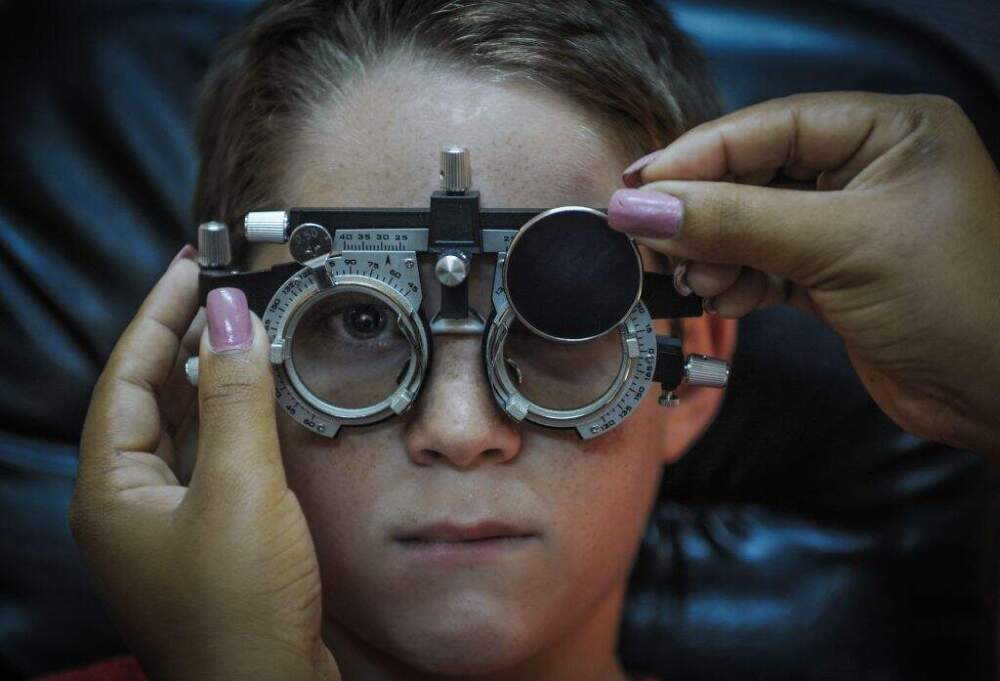I work as an eye doctor at a large teaching hospital in New England. Over the last year, our team of 17 ophthalmologists and four optometrists saw nearly 50,000 patients and performed 4,676 ocular surgeries. (This is according to hospital records — I can’t quite believe it myself.)
None of this would have been possible without an incredible team of health professionals, including a platoon of 23 ophthalmic technicians (OTs). OTs are like the beat cops, detectives and forensic experts of the eye world, all rolled into one highly skilled package. They develop relationships with patients to tease out important details about their visual concerns, gather crucial data on visual function and ocular health, and perform advanced imaging techniques with absurdly complex names like “ocular coherence tomography.”
Doctors use this information to make treatment decisions about a patient’s macular degeneration, or glaucoma, or cataracts, or you name it.
I’m certain any eye doctor would agree that OTs play an invaluable role in vision care and patient access in the U.S. And I’m certain they’d also tell you that filing OT positions is a perennial struggle.
Certified OT training programs are few — only around 30 — and many senior OTs were furloughed during the height of the COVID-19 pandemic and either changed careers or opted for early retirement. My hospital has aggressively recruited OTs over the last three years with the goal of staffing 24 positions. We were finally one technician away from our target when we learned in late June that four of our existing OTs — all from Haiti — would lose their Temporary Protected Status (TPS) and work authorization on August 3. (Since the initial announcement, a court ruling extended protection until February 3, 2026, though the Department of Homeland Security is fighting the order.) According to DHS Secretary Kristi Noem, allowing Haitian nationals to stay in the U.S. is “contrary to the national interest.”
Hospital-wide, hospital administrators say 150 staff must be laid off due to the Trump administration’s policy change. The DHS announcement states that it is now “safe for Haitian citizens to return home.” I don’t think my Haitian colleagues would agree — one lost contact several months ago with a family member back home and has reason to fear the worst.
We were finally one technician away from our target when we learned in late June that four of our existing ophthalmic technicians — all from Haiti — would lose their Temporary Protected Status (TPS) and work authorization …
Research published last year by the American Academy of Ophthalmology predicts that the number of practicing ophthalmologists in the U.S. will meet only 70% of patient need for eye care by the year 2035. The prediction for rural areas is even more grim — just 29%.
Requiring skilled OTs to leave the country will make these numbers even worse; it’s not like there are U.S.-born OTs waiting in the wings to backfill these positions. Allowing Haitians to stay in the U.S. is certainly not, as Homeland Security Secretary Kristi Noem declared, “contrary to the national interest.”
Maladies of the eye do not discriminate between political affiliations and views. Under this new paradigm, all patients — from died-in-the-wool Democrats to MAGA devotees — will face longer wait times to see a doctor. With many sight-threatening conditions, longer wait times often translate to worse outcomes. So, as a result of this policy change, everyone will lose.
My Haitian colleagues provide exceptional, compassionate care without exception to every patient who walks through our doors. They are not, as President Trump suggested, outlandishly, during last year’s presidential debate, “pet eaters”or the “worst of the worst.”
Where will my colleagues go once they’re no longer welcome in the U.S.? Most likely, they will go into the open arms of another country facing similar workforce shortages. One of my colleagues has already left for Canada. Australia, New Zealand and many EU countries also have special visa programs for in-demand health care workers.
Meanwhile, our capacity to provide quality eye care will be cut by nearly 20% due to these departures. (A workforce reduction will directly decrease our ability to see patients.) As anti-immigrant rhetoric and policies persist, this pain will be felt across the U.S. healthcare system. A recent publication by the American Medical Association showed that one in five U.S. health care workers is foreign-born, including 29% of physicians and 17% of nurses.
It’s time for Trump, Noem and Stephen Miller to recognize that their myopia on immigration threatens the health and sight of all Americans.
Follow Cog on Facebook and Instagram. And sign up for our newsletter, sent on Sundays. We share stories that remind you we’re all part of something bigger.

